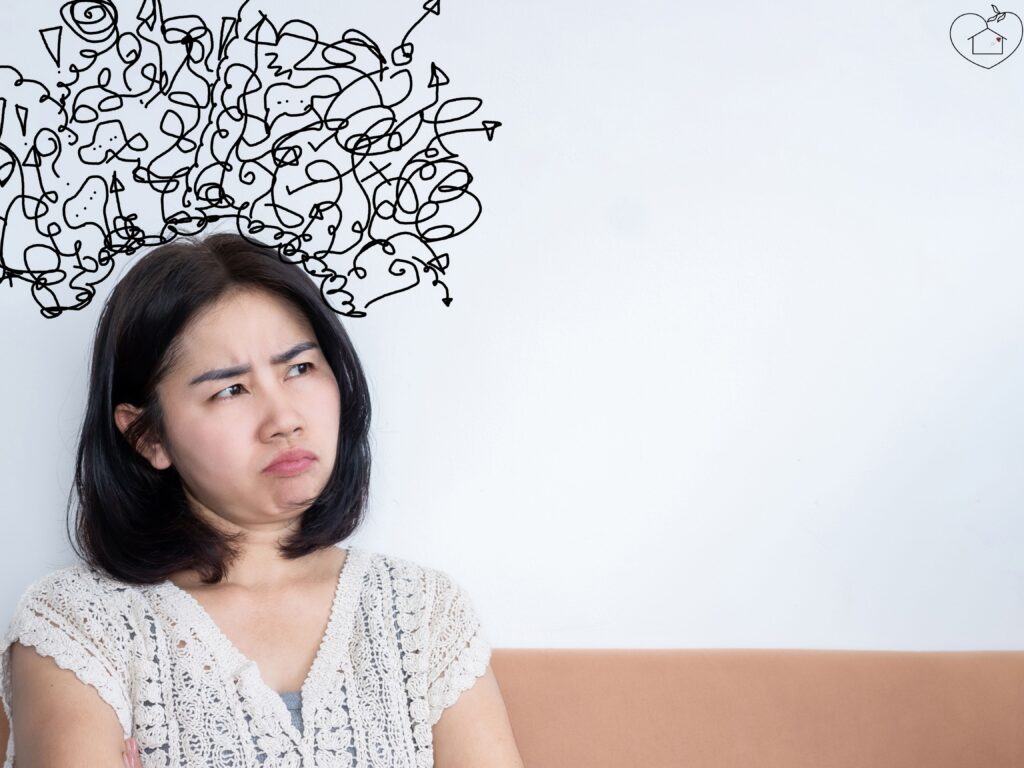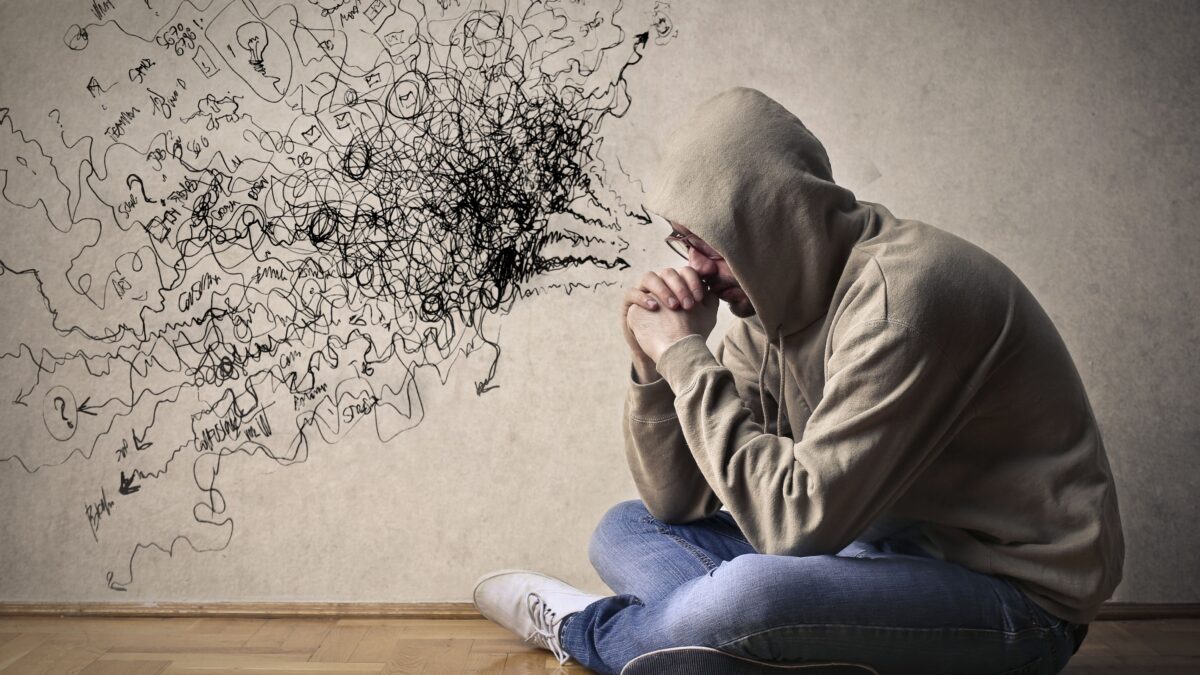Do you ever find yourself thinking, “Why do I feel like everyone hates me?” This overwhelming feeling can make you feel isolated, anxious, and even unworthy. While these thoughts can be emotionally distressing, it’s important to comprehend that they often stem from deeper psychological patterns and aren’t necessarily based on reality. This article examines why you may feel this way, how the psychological field views these negative thought patterns, and offers friendly advice for overcoming these feelings in a healthy way.
Table of Contents
TogglePsychological Wisdom: Why You Feel Like Everyone Hates You
From a psychological perspective, the belief that “everyone hates me” is often tied to negative thought patterns or cognitive distortions. Cognitive distortions are irrational or exaggerated thoughts that lead to incorrect assumptions or beliefs about oneself and others. These thoughts often emerge from anxiety, low self-esteem, or past experiences that create a heightened sensitivity to rejection or criticism.
One common cognitive distortion is personalization, where you assume that people’s actions or moods are directly related to you, even when there’s no evidence. For instance, if a friend seems distant or distracted, you might think it’s because they dislike you, when in reality, they may be preoccupied with their own issues.
Another key factor is catastrophizing, a pattern where you automatically assume the worst-case scenario. If you make a small mistake at work, for example, you might believe that your colleagues now think poorly of you, even if they haven’t said anything to indicate that. Social anxiety also plays a role, causing you to overanalyze interactions and perceive disapproval or dislike where none exists.
Psychologists often address these issues using Cognitive Behavioral Therapy (CBT), which helps individuals identify and challenge their negative thought patterns. By reframing these thoughts, you can begin to see situations more realistically, reducing the likelihood of feeling like “everyone hates you.”
Characteristic Reasons Behind This Feeling
1. Low Self-Esteem
If you have low self-esteem, it’s easy to assume that others see you in the same negative light as you see yourself. This internal narrative can lead you to believe that you’re unworthy of love or acceptance, making you more likely to think that people dislike or hate you.
Example: If you’ve been struggling with self-esteem for years, you might interpret neutral behaviors—like someone not responding to your message right away—as a sign that they don’t like you when, in reality, they’re just busy.
2. Past Rejection or Trauma
Experiencing rejection, bullying, or trauma in the past can shape how you view relationships today. If you’ve been hurt by others before, you might be more sensitive to social interactions and prone to thinking that others are rejecting you, even when they’re not.
Example: If you were bullied in school, you might have internalized the belief that you’re not likable. As an adult, you may carry this fear of rejection into every interaction, assuming people dislike you before they’ve had the chance to know you.
3. Perfectionism
Perfectionists often hold themselves to impossible standards and expect others to do the same. When they don’t meet their own expectations, they might assume that others are judging them just as harshly. This creates an ongoing cycle of feeling inadequate or disliked.
Example: After giving a presentation at work, you might fixate on a small mistake you made, assuming that your colleagues now think less of you. In reality, they probably didn’t even notice the mistake, but your perfectionist tendencies make you believe otherwise.
4. Social Anxiety
Social anxiety leads to a heightened awareness of how others perceive you, often in a negative light. If you struggle with social anxiety, you might overanalyze every interaction, looking for signs of rejection or dislike, even when none exist.
Example: After a casual conversation with a coworker, you might replay the interaction in your head, wondering if you said something wrong or awkward. This overanalysis can lead you to believe that your coworker now dislikes you, even if they acted perfectly normal during the conversation.
5. Comparing Yourself to Others
In today’s social media-driven world, it’s easy to compare yourself to others and feel inadequate. When you see people who seem more successful, popular, or happy, you might start to believe that you’re not as worthy or likable as they are.
Example: After scrolling through Instagram and seeing photos of friends at a party you weren’t invited to, you might feel excluded and assume they don’t like you, even though the reality may be that it was a small gathering or they simply didn’t think to invite you.
Overcoming the Feeling That Everyone Hates You
1. Challenge Negative Thoughts with Evidence
When you feel like everyone hates you, take a moment to question whether this belief is based on facts or assumptions. Ask yourself, “What evidence do I have to support this thought?” If the answer is unclear or based on speculation, it’s likely a cognitive distortion rather than reality.
Example: If you believe a friend is mad at you because they haven’t replied to your text, ask yourself, “Has this person given me any actual reason to think they’re upset?” Maybe they’re just busy, and assuming the worst only adds unnecessary stress.
2. Practice Self-Compassion
Be gentle with yourself and recognize that you’re human. Everyone makes mistakes, and it doesn’t mean others will hold them against you or dislike you because of them. Practicing self-compassion means accepting your imperfections and comprehending that others likely see you more positively than you see yourself.
Example: If you’ve had an awkward social interaction, remind yourself, “It’s okay to have off moments—everyone does.” Instead of concentrating on one awkward encounter, think about your positive interactions with that person.
3. Reach Out to Trusted Friends
If you’re feeling like everyone dislikes you, reach out to a trusted friend or family member. They can offer reassurance and help you gain a more balanced perspective. Often, talking about your feelings with someone who cares about you can provide comfort and clarity.
Example: If you’re worried that your coworkers dislike you, talk to a close friend about your concerns. They might remind you of the positive feedback you’ve received from colleagues or help you see that your fears are unfounded.

4. Avoid Mind-Reading
It’s easy to assume you know what others are thinking, but the truth is, we can’t read minds. Just because someone seems distant or distracted doesn’t mean it has anything to do with you. Practice reminding yourself that you don’t know the full story of what’s going on in someone else’s mind.
Example: If a friend cancels plans last minute, instead of assuming they don’t want to spend time with you, consider other possibilities—they might be tired, stressed, or dealing with something personal. Avoid jumping to conclusions without evidence.
5. Concentrate on Self-Esteem Building Activities
Low self-esteem often fuels the belief that everyone hates you. Hire in activities that build your confidence and remind you of your worth. Whether it’s pursuing a hobby, practicing mindfulness, or setting small goals, doing things that make you feel proud of yourself can help shift your stress away from negative thoughts.
Example: If you enjoy painting, set aside time each week to work on your art. Completing a project or learning a new technique can give you a sense of accomplishment and reduce negative self-perception.
6. Limit Social Media Consumption
Social media can amplify feelings of inadequacy or rejection, especially when you compare your life to others. If scrolling through social media makes you feel worse about yourself, consider taking breaks or setting boundaries around your usage.
Example: Limit your social media time to 30 minutes a day or unfollow accounts that trigger negative comparisons. Concentrate on connecting with friends in real life, where interactions are more genuine and less curated.
7. Practice Mindfulness and Grounding Techniques
When negative thoughts start to spiral, grounding yourself in the present moment can help reduce anxiety. Mindfulness practices, such as deep breathing or concentrating on your senses, can help you detach from the idea that everyone dislikes you and bring your attention back to what’s happening.
Example: If you’re feeling overwhelmed by negative thoughts, take a few deep breaths and concentrate on how your body feels. Notice the sensation of your feet on the ground or the air around you. This can help calm your mind and give you a fresh perspective.
8. Talk to a Therapist
If the feeling that everyone hates you is persistent and impacting your quality of life, it might be helpful to talk to a therapist. Cognitive Behavioral Therapy (CBT) can be especially useful in identifying and challenging the negative thought patterns that fuel these feelings.
Example: A therapist can help you comprehend where your thoughts of rejection stem from and provide tools for reframing them. Working through these issues with a professional can help you break free from the cycle of self-doubt.
9. Reframe Mistakes as Learning Opportunities
Everyone makes mistakes, but how you view them can affect your self-worth. Instead of seeing mistakes as proof that others hate you, try reframing them as opportunities to learn and grow. Mistakes don’t define you, and they don’t mean people will hold them against you.
Example: If you said something awkward during a meeting, instead of thinking, “Now everyone hates me,” try thinking, “Next time, I’ll prepare my thoughts beforehand.” This shift in perspective helps you see mistakes as part of the learning process, not a reason to believe you’re disliked.
10. Practice Gratitude for Positive Relationships
Concentrate on the positive relationships you have, rather than fixating on the possibility that others might dislike you. Practicing gratitude for the people who support and care about you can help shift your mindset to positivity and connection.
Example: Each day, take a moment to reflect on the people who make you feel valued. Write down their names and one thing you appreciate about each person. This simple practice can remind you that you are liked and cared for, even when your mind tries to convince you otherwise.
Feeling like everyone hates you can be a distressing experience, but it’s often rooted in distorted thinking rather than reality. By challenging these negative beliefs, practicing self-compassion, and seeking support from friends or a therapist, you can shift your mindset and find greater peace in your relationships.
Watch and Read!
- “The Four Agreements” by Don Miguel Ruiz
- “Feeling Good: The New Mood Therapy” by Dr. David D. Burns
- “The Gifts of Imperfection” by Brené Brown
- “Inside Out” (2015)
- “Good Will Hunting” (1997)
- “Silver Linings Playbook” (2012)
FAQ
This feeling often stems from cognitive distortions, such as personalization or catastrophizing, and may be linked to low self-esteem or past experiences of rejection. Challenging these negative thought patterns is key to overcoming them.
Start by questioning the validity of your thoughts and looking for evidence. Practice self-compassion, reach out to supportive friends, and entertain in self-esteem-boosting activities. Talking to a therapist can also help if the feelings persist.
While it’s not uncommon to have occasional negative thoughts, feeling like everyone hates you regularly can indicate deeper issues, such as low self-esteem or social anxiety. Seeking support and challenging negative beliefs can help you guide these feelings.

